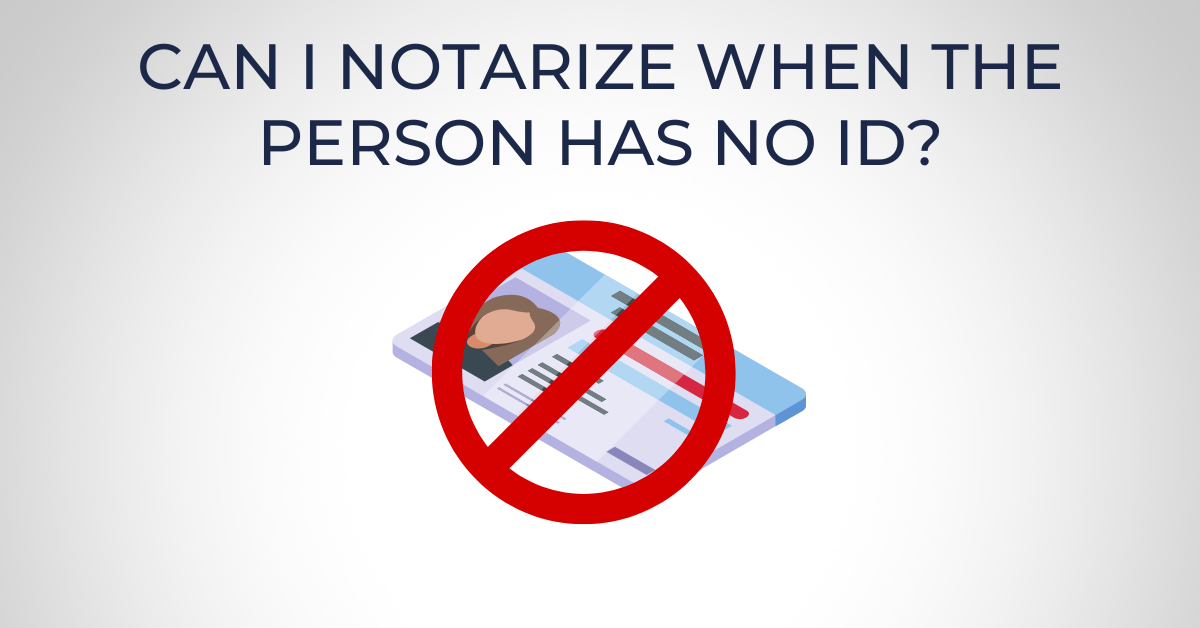Notary Public Underwriters Blog
Can I Notarize When the Person Has No ID?
- Details
- Published: June 24, 2024

Many assume an identification credential is always necessary to identify a person requesting a notarial act. But under the right circumstances, a notary can identify a person by “personal knowledge” of that individual’s identity.*
_______________
* Presently, California is the only state that does not allow its notaries public to rely solely on personal knowledge to identify a principal requesting a notarial act.
The legal definitions of “personal knowledge,” “personally known,” and similar concepts differ in state laws. The intended effect is the same. A notary's personal knowledge of a present individual's identity is sufficient and acceptable for the purposes of performing a notarial act for that individual.
Individuals who are typically “personally known” to a notary include family, friends, and persons known through ongoing personal, employment, or business dealings. These dealings must give the notary reasonable certainty that the individual has the identity claimed. (See Revised Uniform Law on Notarial Acts of 2021, Pages 16-17).
Notaries must use good judgment and common sense when deciding whether they "personally know" someone with no identification who requests a notarial act. “Personal knowledge” depends on the notary’s careful assessment of all relevant factors: “… Have my dealings with this person made me reasonably certain they are who they claim to be? Have those dealings occurred over a period of time that causes me to believe the person has the identity claimed?”
Notaries must avoid personal-knowledge pitfalls, such as assuming that a coworker's nickname reflects their given name. It might not. Another pitfall is believing you "personally know" someone when you really don’t, especially when you have no idea of the person’s full name or given name. Unless you have had dealings with a person that make you reasonably certain they are who they claim to be, always insist on seeing documentary identification or, where allowed*, identify the present individual by means of a credible witness.
_______________
* Certain states allow a notary public to identify a present individual by the oath/affirmation (or sworn written statement) of a “credible witness” who personally knows the individual, and who meets all credible-witness requirements in the notary’s state of commission/appointment.
Finally, prioritize performing expert notarizations and safeguarding the interests of parties affected by your notarial acts. Do this by refusing to proceed when you feel the requirements of notarization are not being met. Never perform a notarization when you don’t believe you have the information you need to properly identify the individual appearing before you for the notarial act.
Check out our YouTube video below.
Related Article(s)
How to Assess Signer Awareness or Coercion
What to Do When the Notary Certificate Is Missing?
Should the Date on the Notarial Certificate Match the Date That the Notarized Document Was Signed?
How to Handle Out-Of-State Documents
What Should I Do When There's No Room for My Notary Stamp?
Beyond the Notary Stamp – Supplies Notaries Need

